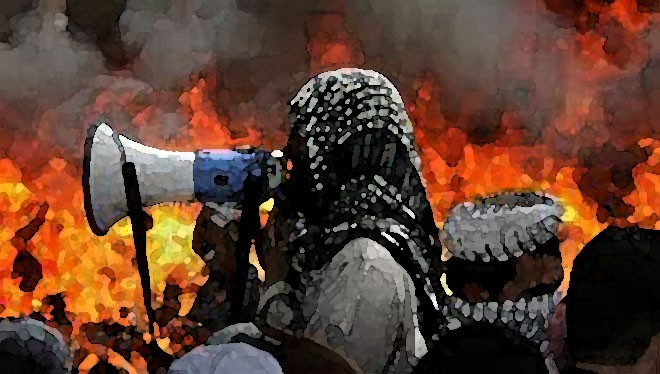
It is very difficult to handle a law’s violation which has gained acceptability in a society. Unlawful use of loudspeaker is one such case

Pakistan is known for having laws on almost every other subject though very few of these are implemented. The West Pakistan Regulation and Control of Loudspeakers and Sound Amplifiers Ordinance, 1965 is one such law which has been there for around half a century but is rarely enforced. The law prohibits use of loudspeakers or amplifiers for purposes other than azan, prayers, sermon in Arabic on Fridays, or at the time of Eid prayers.
The preamble states that the law was "expedient for the purposes of preventing public nuisance and the voicing of utterances of a controversial nature likely to cause public disorder, to regulate, control, and prohibit in the interest of public order, decency and for the prevention of incitement to the commission of any offence."
If one looks at the incidents of violence, one finds that the unregulated use of loudspeaker is a major reason behind escalation of tensions and triggering of conflicts. Leaders of different sects believe it is their religious obligation to sell their brand of religion to those within the audible range of their sermons.
A senior police officer, who had to face immense pressure from religious groups for arresting prayer leaders violating this law, tells TNS that it is too difficult to take these people head on. "If you get tough with them, they call you anti-Islam or supportive of one particular sect," he says.
He adds it becomes very difficult to handle violations which gain acceptability in society and the unlawful use of loudspeaker is one such case.
People have become used to the influence of mosques, especially in villages where they have become part and parcel of their life. All the major announcements are made from the mosque whether these are related to people’s religious obligations or not.
Muhammad Iqbal, a lecturer at a private university in Islamabad, says prayer leaders in villages are mostly required to use loudspeakers. The women who cannot leave their houses send questions written on a piece of paper to prayer leaders, asking them about religious issues. Prayer leaders answer questions with the help of a loudspeaker so that all those sitting at homes or in streets can listen.
"Religious leaders believe the more the people hear their message the higher the reward for them in the afterworld," says Iqbal who belongs to Kacha Pakka village in Kasur. He recalls an incident of his childhood where his mother gave him some money to be handed over to the prayer leader as contribution to the cost of repair work at the village mosque. "When I returned after performing the task, she asked me to go back to the mosque and ask the prayer leader to announce with the help of loudspeaker that she had sent such and such amount of money for repair work," he recalls.
It may come as surprise to many that regulation of loudspeaker use is not just required in the case of mosques. It is also prohibited in a place of worship during prayer times, a hospital providing facilities for indoor patients at any time of the day or night, an educational institution, a court, a hospital not providing facilities for indoor patients or any other public institution, office during their usual working hours at a volume whereby the working or the use of such place is likely to be disturbed.
The concept of precinct is very important here. Even if a loudspeaker or amplifier is used inside a mosque, church, temple, or other place of worship, the sound from such loudspeaker or sound amplifier shall not be heard outside the immediate precincts of such mosque, church, temple or other place of worship.
"A sub-inspector can take action in case of violation, which may result in three months’ imprisonment or fine which may extend to Rs 2,000," says Hafiz Shahid, a Lahore-based lawyer. He says this is the case in Punjab whereas in Islamabad, the punishment is one year imprisonment or Rs 50,000 in fine, or both. The Islamabad Capital Territory law was amended twice, once in 2007 during the tenure of Pervez Musharraf and then in 2011.
People contacted for comments identified certain loopholes that need to be plugged to make the law effective. For example, the punishment is too little and does not serve as a deterrent; there is no clarity on how to handle habitual offenders and the definition of ‘moderate’ voice and permissible range of a loudspeaker is not defined. Besides, the law is silent on the acceptability or not of loudspeakers’ use for public service, such as for announcement of someone’s death, for a child lost or found, for people to get tested for dengue or vaccinated against diseases or for eviction in case of approaching floods.